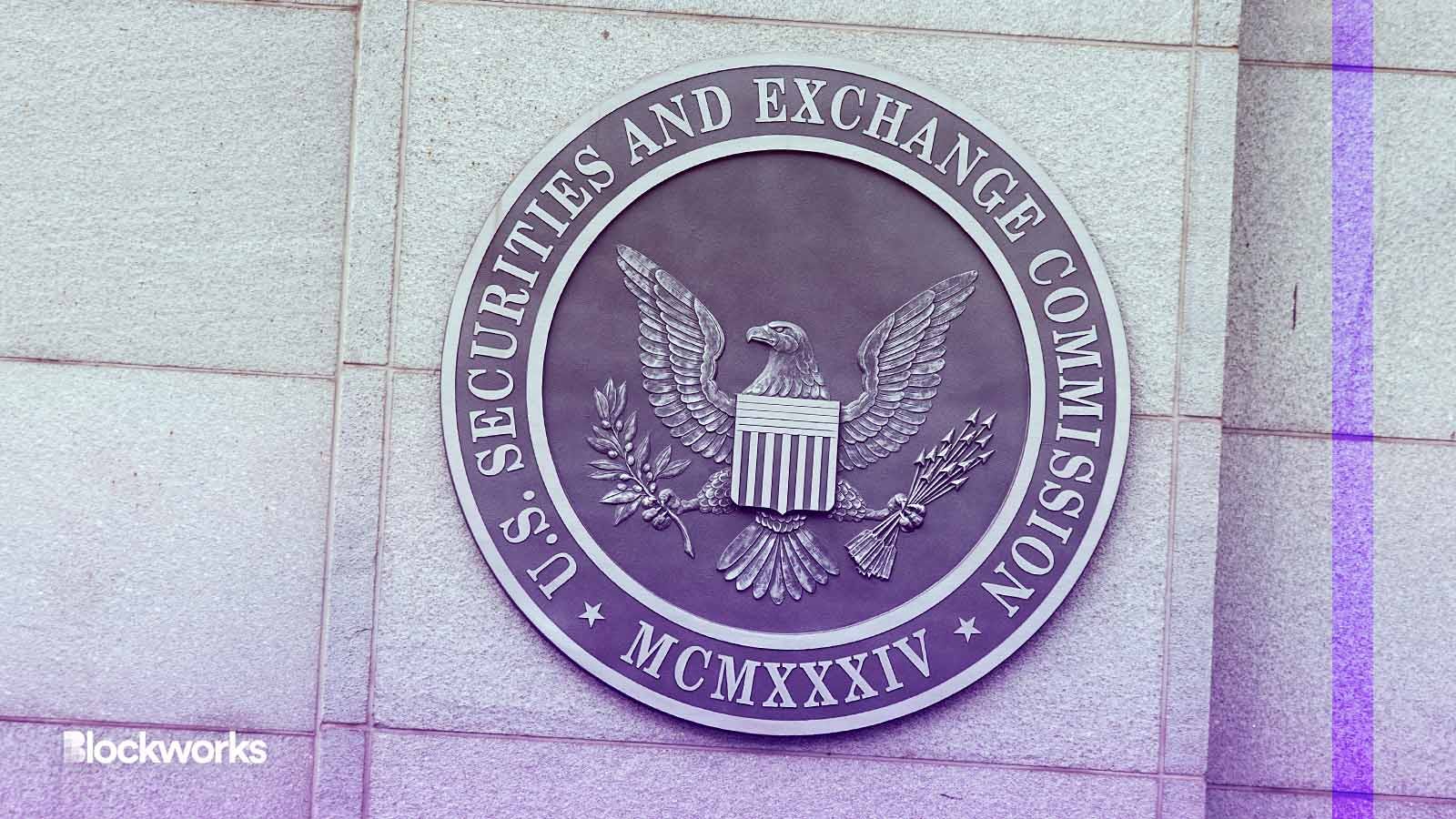Coinbase, a16z, Blockchain Association Push Back on SEC’s Proposed Custody Rule
The change to the custody rule would allow the SEC to oversee all assets — not just funds and securities — under adviser supervision

Mark Van Scyoc/Shutterstock modified by Blockworks
Andreessen Horowitz, Coinbase and the Blockchain Association penned separate 20-page letters to the SEC in response to a proposed rule change.
All three pointed out potential hiccups and concerns around the proposed custody rule that the regulatory body announced in February.
The change to the custody rule would allow the SEC to oversee all assets — not just funds and securities — under adviser supervision.
The commission claimed that the change would protect both investors and their assets, though a16z, Coinbase, the Blockchain Alliance and even the SEC’s own Hester Peirce have raised concerns.
Here’s what Coinbase, Andreessen Horowitz, and the Blockchain Association said about the proposed rule change.
Coinbase
Coinbase said in its letter that, if the SEC rendered the staff guidance, then it would actually support the proposal.
“These assumptions [about custodial practices] are not necessary or appropriate, and could be detrimental to consumer protection for other asset classes, including crypto assets (whether or not they are securities),” Coinbase stated.
Coinbase pushed for the proposed change to continue to recognize that state-regulated trust companies count as qualified custodians. The exchange operates Coinbase Custody Trust, which provides cold storage for digital assets of third-party investors.
The SEC previously asked for comments around tightening the definition to only recognize banks that are subject to federal regulation.
“State financial regulators are often more nimble than their federal counterparts in response to technological and economic changes. Thus, including them as a class of qualified custodians promotes competition, efficiency, and investor protection,” the letter said.
The exchange said it also believes that the SEC’s crackdown on registered investment advisers, which would require RIAs to have possession of the client trades at all times, a “restriction on crypto asset trading” that “does not account for why crypto exchanges pre-fund transactions or the benefits of pre-funding such as real-time settlement.”
The company is currently engaged in a legal battle with the SEC over the definition of securities. Coinbase has previously said that it does not list securities, but SEC Chair Gary Gensler believes that it does and, furthermore, that it needs to be registered as a national securities exchange.
The SEC served Coinbase with a Wells notice in March. Coinbase then sued the SEC, demanding regulatory clarity on crypto.
Andreessen Horowitz
A16z believes that the SEC needs to create a “broad and robust regime for the self-custody of crypto and other assets by RIAs,” according to its letter.
For the venture capital firm to support the proposed rule, the commission would need to address “serious concerns,” which include making exceptions that would make the proposed rule “workable for crypto,” the venture capital firm said.
“In support of a broader self-custodial regime, we question whether the Commission has adequately considered whether, and how the Safeguarding Rule will work for crypto assets that have participatory features such as staking, or voting,” it continued.
Similarly to Coinbase, it believes that preventing RIAs from “trading crypto assets on centralized platforms will likely deprive RIA clients of the most liquid trading venues for these assets.” Which, in turn, would make it so that RIAs would struggle to “meet their fiduciary duty of best execution.”
Andreessen Horowitz claims that the lack of data-gathering and analysis “relating to crypto asset markets and market makers, militate against the Commission’s own stated best practice, which requires it to consider the economic implications of a rule” could violate the Advisers Act.”
The Advisers Act was initially enacted in 1940 to enforce regulations that would prevent or end the abuse of securities in the wake of the Great Depression.
For the proposed rule to work for crypto, a16z believes that a proposed self-custodial exception must cover all assets for “which no suitable qualified custodian can be reasonably found,” and allows RIAs to self-custody crypto assets.
RIAs would also be able to trade crypto assets on DEXs, as well as “suitable exchanges” without violating the Safeguarding Rule.
Andreessen Horowitz has previously been vocal with its objections about the SEC’s regulatory approach to crypto, warning that the UK should not follow in the regulatory footsteps of the US.
Blockchain Association
The Blockchain Association wrote that the attempt by the proposed rule to restrict digital asset investment activity is “inconsistent with the principles-based approach set out by Congress in the Advisers Act, which affords investment advisers and advisory clients broad flexibility to shape the scope of their fiduciary relationships.”
The need for “qualified custodians” would prevent “digital asset-native custodians from continuing to provide custodial services, which would reduce, rather than increase, protections for advisory clients,” the Association claims.
Similarly to a16z, the Association believes that the SEC is not recognizing that digital assets are “technologically distinct” from other asset classes.
The Association wrote that the SEC, with the current framework of the proposed rule, exceeds the authority it received from Dodd-Frank’s Advisers Act amendments.
The rule will also reduce protections for clients who invest in digital assets because the “segregation requirement, as applied to state-chartered banks, would impose a regulatory regime that rests on ambiguous state law principles” which would prevent RIAs from understanding whether they are in compliance or can comply with the rule.
Similarly to Coinbase, the Blockchain Association also voiced concern about the comments around modifying the definition to state-chartered financial institutions.
Outside of Coinbase, a16z and the Blockchain Alliance, a slew of companies and general counsels have submitted comments on the proposed rule, according to the SEC’s website.
The press release from February stated that public comments would be open for 60 days following the “publication of the proposing release in the Federal Register.”
Get the news in your inbox. Explore Blockworks newsletters:
- The Breakdown: Decoding crypto and the markets. Daily.
- 0xResearch: Alpha in your inbox. Think like an analyst.






